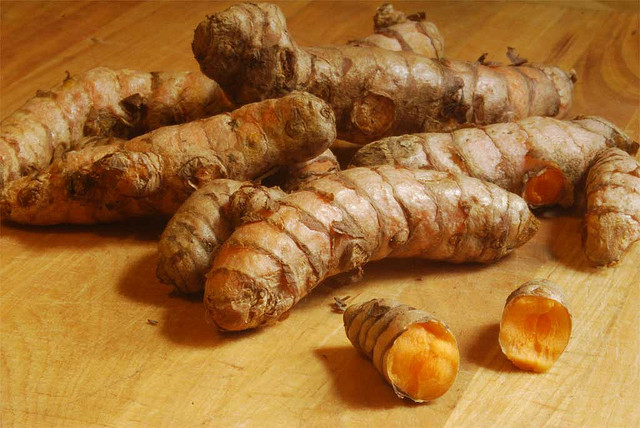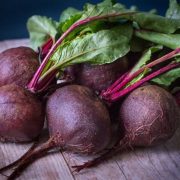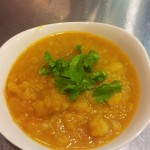Fall Immune Support in Food and Routine
 Fall is here and whether you find yourself playing outside or working indoors, taking preventative steps to keep you and your family healthy throughout the winter will make the seasons much more enjoyable.
Fall is here and whether you find yourself playing outside or working indoors, taking preventative steps to keep you and your family healthy throughout the winter will make the seasons much more enjoyable.
The immune system is our body’s way of fighting off colds, flus and other bugs. When functioning properly, it keeps us feeling healthy and maintains enough our energy and ability to work, play, concentrate and do what we do every day. Catching a cold can be expensive, time-consuming and a source of stress in our lives. Preventing colds and flus is a great way to maintain physical, emotional and mental well- being. There are many ways to support your body’s immune system this fall to stay strong and healthy. Considering what you eat is a great place to start – this begins with what you stock the cupboards with. For example, cooking from scratch, using mainly whole foods, is much better for your immune system and overall health than going out to eat.
When deciding on what foods to stock your kitchen with, it is best to look for whole foods, unrefined and unprocessed foods. A whole food is just that –the only ingredient it contains is the one food itself. For example, foods that can be grown such as vegetables, fruits, nuts, seeds and beans are whole foods. These whole foods also have a better balance of vitamins, minerals, fiber and other nutrients than just part of the food (such as fruit juice or a seed oil). Whole foods are unprocessed and unrefined. The more whole foods you and your family eat and the less refined, processed and treated foods you eat, the healthier you will be now in the cold and flu season and in the future. Eating a colorful variety of whole foods will give yourself the nutrients and energy you need to thrive, as well as help to fight off infections.
- Avoiding sugars may be the most important dietary change to make to support your immune system, especially when you begin to feel sick. This includes any refined or processed sugars and sweeteners, but even minimizing natural sweeteners such as juices is important. Also, avoiding any foods you are sensitive to or have an allergy to will reduce inflammation so the body can re-focus its resources where it is most needed. The most common food allergens are gluten, wheat, dairy, eggs, corn and soy.
- There are some foods and herbs in particular that are of benefit to the immune system. For example, the various forms of vitamin A and carotenes are necessary to build the cells of the immune system (immunoglobulins, lymphocytes and more). These vitamins are found in sweet potatoes, squash, carrots, cantaloupe, broccoli, green leafy vegetables (including dark lettuce), mangos, apricots, peaches, red peppers, pink grapefruit, pumpkins, and tomato sauce/paste. Some animal products also contain high amounts of Vitamin A such as liver, cod-liver oil, and whole dairy products including whole milk, cheese, and butter, as well as fish (tuna, sardines, and herring).
- Vitamin C and Zinc are essential nutrients for the immune system. Adequate intakes of these nutrients can help prevent colds and flus by allowing the immune system access to them as soon as you are exposed to an infectious agent. Increasing your intake of vitamin C and zinc when you start to feel sick will help replenish their quickly depleting reserves. Vitamin C and Zinc has been shown to relieve symptoms and shorten the duration of respiratory tract infections, including the common cold. Vitamin C is found in citrus, peppers, melons, berries, tomatoes, green peppers, parsley, green fresh vegetables, cantaloupes, strawberries, cabbage, turnips and many other vegetables and fruits. The form of zinc that is very available to the body is found in high levels in meat, eggs, and seafood (especially oysters). Yogurt, almonds, peanuts, beans and whole grains also contain zinc.
- Garlic, onions and ginger contain volatile oils that are anti-microbial (can fight viruses, bacteria and even fungal infections) and are excellent to incorporate into almost any meal. Mushrooms also have medicinal value, supporting the immune system and fighting infections once they’ve entered the body. Incorporating mushrooms into soups, stews, and stir-fries is a simple and delicious way to support your health.
- Taking a probiotic supplement (the beneficial gut bacteria) or eating probiotics as fermented foods and other support for the digestive system also has a direct effect on the immune system. Not only is most of the body’s immune system located in the gastro-intestinal system, a healthy gut as I like to call it will also help you absorb more vitamins and nutrients for the food you eat which in turn provides the immune system with the resources it needs to fight colds, flus and other infections going around. Probiotics are found in truly fermented foods such as Sauer kraut, kimchi and other fermented veggies. They are also found in yogurt, and fermented beverages such as kefir, kombucha or homemade ginger bugs. Make sure there are active live cultures existing if you purchase these foods or better yet, make them yourself! The books, Wild Fermentations and Nourishing Traditions have a collection of good recipes for fermented foods, some of which can also be found on the Internet. Taking a probiotic supplement, especially if you have a weak GI system or are feeling sick can also help. Prebioticsare foods that contain certain fibers (such as inulin) that feed beneficial gut bacteria (probiotics), which stimulates their activity and thus also supports a healthy GI system. Some foods that are prebiotics include: Jerusalem artichoke, dandelion, asparagus, banana, barley, chicory root, garlic, honey, leeks, mushrooms, onion, oats and rye. Cooked cabbage and cabbage juice are also very supportive of the GI track as cabbage is high in the amino acid glutamine. Getting enough fiber in the diet to help with elimination also helps the body to function properly. Fiber is found in vegetables, fruits, beans, and whole grains.
- Besides choosing to eat healthy, simple lifestyle changes can keep us functioning with optimal energy, a clear mind and healthy immune system. Getting to bed early enough for a restful sleep so that you wake rested and without an alarm is a great place to begin. Try getting to bed 5- 15 minutes earlier each night until to reach your target bedtime and then try to keep bedtime and the time you get out of bed consistent each day. A goal of 7-10 hours of sleep at night is usually enough for most. Growing children and teens need more than adults, but listen to your body. A routine of adequate rest is one of the best ways to keep your immune system healthy and REST is the best treatment once you begin to feel sick, even if it means something may have to wait a few days.
 Drinking plenty of water is essential for energy and all body functions, including that of the immune system. Dehydration reduces energy and can cause headaches. A good goal is to make it a routine to drink one-third to half of your body weight in ounces of water each day. Keep water glasses or bottles full where you spend most of your time to remind yourself to drink and enjoy plenty of caffeine-free herbal teas in this winter season.
Drinking plenty of water is essential for energy and all body functions, including that of the immune system. Dehydration reduces energy and can cause headaches. A good goal is to make it a routine to drink one-third to half of your body weight in ounces of water each day. Keep water glasses or bottles full where you spend most of your time to remind yourself to drink and enjoy plenty of caffeine-free herbal teas in this winter season.- Speaking of herbs, there are some common herbs that help fight infections and/or support the immune system. Using culinary herbs such as thyme, oregano, basil and rosemary will help your body fight infections while using teas such as chamomile can help promote restful sleep when taken at night. Honey and lemon in tea are also anti-microbial and go great with fresh ginger tea, an excellent anti-microbial and digestive aid. Honey and other soothing herbs such as slippery elm, marshmallow and licorice root can help soothe sore throats. Especially when taking herbs, you should always consult your naturopathic doctor to help develop a health plan that is individually tailored for you and your body’s needs.
So as we enter fall and winter, plan ahead and keep your kitchen (garden, root cellar, etc.) stocked with plenty of immune-boosting foods (like our Immune Support Soup), sources of probiotics as well as immune supportive herbs and spices. Creating routines to get enough sleep, water and exercise as well as finding ways to nourish your soul and handle sources of stress will boost your immune system and prepare you and your family for an enjoyable season.












